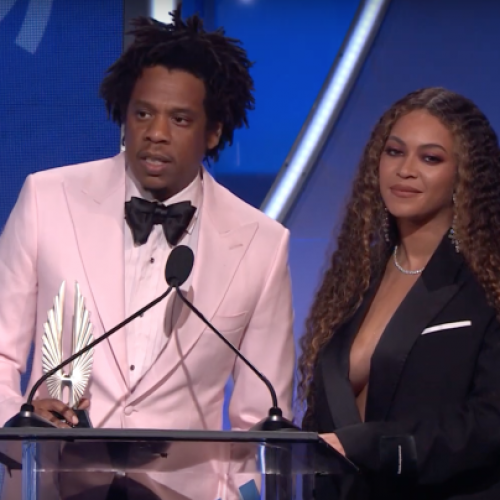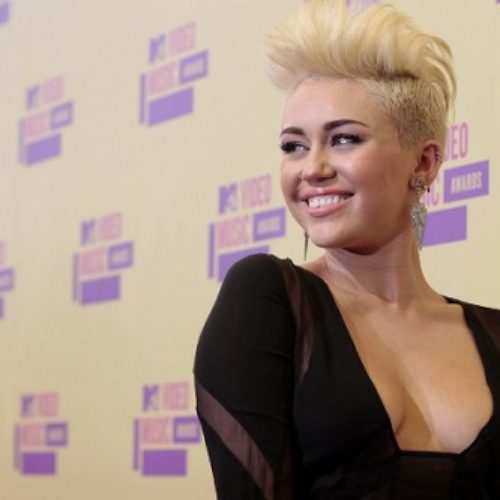Identity Politics and the fury against Tennis star Martina Navratilova for saying transwomen shouldn’t be able to compete as women
Martina Navratilova is one of the greatest woman tennis players of all time. During her career, she won an astounding 59 Grand Slam titles. She was also one of the first world-class athletes to come out as gay, all the way back in 1981, long before it was common, much less fashionable, to do so.
Despite that resume, Athlete Ally, an LGBT athletic group, removed her from their advisory board and have publicly disassociated from her.
Why? Because though she has long represented the “L” in the LGBT acronym, she offended the “T.”
In February, Navratilova wrote an op-ed in The Sunday Times titled “The rules on trans athletes reward cheats and punish the innocent,” writing, “Letting men compete as women simply if they change their name and take hormones is unfair — no matter how those athletes may throw their weight around.”
Navratilova, who has been vocal about gay inclusion in sports for decades, was then criticized by many in the LGBTQ community for her comments, which some thought were transphobic.
This was not the first time she had expressed such an opinion. Last December, she found herself in hot water when she tweeted that “You can’t just proclaim yourself a female and be able to compete against women . . . There must be some standards and having [male genitalia] and competing as a woman would not fit that standard.”
The backlash was swift and harsh. In response, Navratilova said that she would take some time to research and rethink the issue. Her views were however, in her words, “only strengthened.”
As she wrote, “To put the argument at its most basic: a man can decide to be female, take hormones if required by whatever sporting organization is concerned, win everything in sight and perhaps earn a small fortune, and then reverse his decision and go back to making babies if he so desires.”
Obviously, that wasn’t the sort of “rethinking” her critics expected. But then again, they weren’t really hoping she’d think. They were demanding ideological conformity.
At a deeper level, this story reveals our society’s embrace of a particularly unworkable variety of identity politics. There are many definitions of “identity politics,” but they all boil down to the idea that the only thing that matters, especially in politics, is the experience of oppression shared by all those who share some identifying marker—like race, gender, sexual orientation/gender identity, etc.
In the identity politics way of keeping score of cultural grievances, everyone’s experience of “oppression” is deemed equally valid and horrific, even if it isn’t.
Now, add to identity politics the idea of “intersectionality.” Intersectionality attempts to pile identities and their oppressive experiences on top of one another. Someone with multiple identity markers can claim degrees of intersectionality and therefore their own special kinds of oppression: For instance, a person might be an Afro-Latina lesbian female. Or a Filipino trans.
The fuzzy math at work here makes the possibility of conflict almost unlimited, an especially acute possibility in the growing acronym of LGBT. The only thing members of this coalition have in common is that they are not heterosexual.
A core tactic of transgender ideology has been to blur and deny any differences between the various letters in that acronym, all while hijacking the narrative of oppression. In the process, they deny all differences between women and men—from strength to traits to the very existence of sex and gender altogether.
In her response to the backlash over the weekend, Navratilova claimed she was unfairly criticized for her comments last month.
“Well, I certainly stumbled into a hornets’ nest,” Navratilova wrote. “The support I normally get from ‘my people’, the LGBT community, was replaced by a barrage of quite nasty personal attacks.”
In her latest statement, Navratilova did not backtrack on her sentiment, just her phrasing, and added more context to her thoughts.
“When I talk about sports and rules that must be fair, I am not trying to exclude trans people from living a full, healthy life,” she said. “All I am trying to do is to make sure girls and women who were born female are competing on as level a playing field as possible within their sport.”
Martina Navratilova understands the difference between the female body and the male body. She knows that there’s more to being a woman than simply identifying as one. But, saying it out loud makes her persona non grata.
To be precise, she’s now known as a TERF, a “trans-exclusionary radical feminist,” a name that is every bit as insane and unfair as allowing men to compete in women’s sports.
But this is where a hyper post-modern, feelings-and identity-driven worldview leads us: not to fairness. Not to overcoming oppression. Only to insanity.










11 Comments
Pete
March 05, 06:30I’m with Martina here. Trsnswomen shouldn’t compete against ciswomen. It’s unfair as they have so many undue advantages. Personally, i think the governing councils should create strata as we’ve in Paralympic sports to reflect the recognition of trans-ness as valid.
Black Dynasty
March 05, 08:20I fully agree with Martina as well, trans women cannot and should not compete in sports against cis women (I include women like castor semenya as a cis woman despite her high hormone levels).
Being borne originally as a man come with physical advantages that have been locked in will not be removed after transition and thus is an unlevel playing field to cis women. People are being overly sensitive and the backlash is unwarranted and PC being taken too far. She’s not transphobic for speaking the truth.
Black Dynasty
March 05, 08:23Being born originally as a man comes with physical advantages that have been locked in and will not be removed after transition*
Pete
March 05, 09:58I’m wary of including Caster Semenya as a cis woman. She has no womb or ovaries, but instead has internal testes because of a chromosomal abnormality.
Black Dynasty
March 05, 17:38Yes, due to a medical condition. She is however XX vs XY for a male and every bit a cis woman genetically. She did not choose her medical abnormality.
Besides, the medical condition is not what people have an issue with. It’s the hyperandrogegism and this only came up after she started winning races…. when interestingly there have been and still a few ladies with similar condition in the track who are good but not great, there’s also a lot of them in the field section, especially the throwing and of the heptathlon.
that dark-fair guy
March 05, 13:35This is also how I feel about this. I can’t really wrap my fingers around it. Hormone blockers can only do some work.But what determines hormone production is gene expression, and although trans women are women, the expression of their genes will still be there. And we don’t even want to talk about the stronger bone and muscle mass that testosterone would have provided in the early stages of their lives- read puberty. And these bone and muscle mass is what is really needed in sports. The greater the muscle mass, the stronger the person, and the greater the energy consumed by the muscles.
I will like to read Dimkpa’s thoughts on this though. Hi Dimkpa.
Bee
March 05, 18:25Lol, why are we behaving like we’re just noticing unfairness in sports? Even if trans people didn’t exist, gender alone is not barely enough to differentiate players. Some people will never be as strong or as fast (or whatever) as others even if they’re the same gender … because of the same issue; genetics.
Jane could have naturally incredible flexibility and even after discovering it, cannot win an Olympic medal because she is unavoidably plus-size. No matter how much exercise is applied. But her skeletal system is actually more impressive than the girl in the news.
Uduak could be 4’5″ and so fast for his height and still not be able to overtake average Kevin; and if some kind of human speed index was available, we’d see that he’s leagues away from Kevin.
When we say that people are different, I don’t think you guys really understand. Different means DIFFERENT. DISSIMILAR. DISPARATE. DIVERGENT. All of them. The only thing that stays the same is that we all have human brains. (Or maybe that doesn’t cut it either.)
I’d love to think that total inclusion and fairness is possible but I don’t think it is. On this particular issue, I don’t have an opinion. I don’t know any solution.
Pink Panther
March 06, 00:09Um, I think there’s a difference between inequality due to genetics and the one due to gender. Don’t convolute the issue please.
Patrick
March 06, 03:24I agree.
Of course people have different physical capabilities; no two people are equally physically endowed. How then do you create a near-level playing field to accommodate these differences? Grouping athletes by gender is the most reasonable and obvious option. And with good reason, most sports have their athletes separated by gender, and in virtually all cases, the sporting feats of the men have been superior to those of their women counterparts. That’s just how it is.
Regarding the story, I think the extreme Left needs to calm down in how it vilifies allies. Was Adichie not lampooned as transphobic for something so equally frank and benign.
They’ve called Navratilova a Nazi. Obama has been called racist. They’re, in fact, closing in on themselves.
Bee
March 06, 08:21I wasn’t speaking on the issue. I was trying to point out that even after grouping athletes by gender, we’re still very far from fairplay. And I also refuse to believe that something as basic as binary gender is the most effective classification we can come up with for 8 billion people. Please understand me; sports is definitely better with binary gender grouping than without it. But as we can see, it’s posing a problem now. This isn’t the first time I’m thinking about this; even before I knew about transgender people, I’ve always found binary gender grouping quite limited. And I really think it’s a conversation we’re going to have sometime soon.
I know there’s a difference between genetics and gender. That was kinda the point.
Wonda Buoy
March 06, 11:43Fair play grouping would be by dick size??